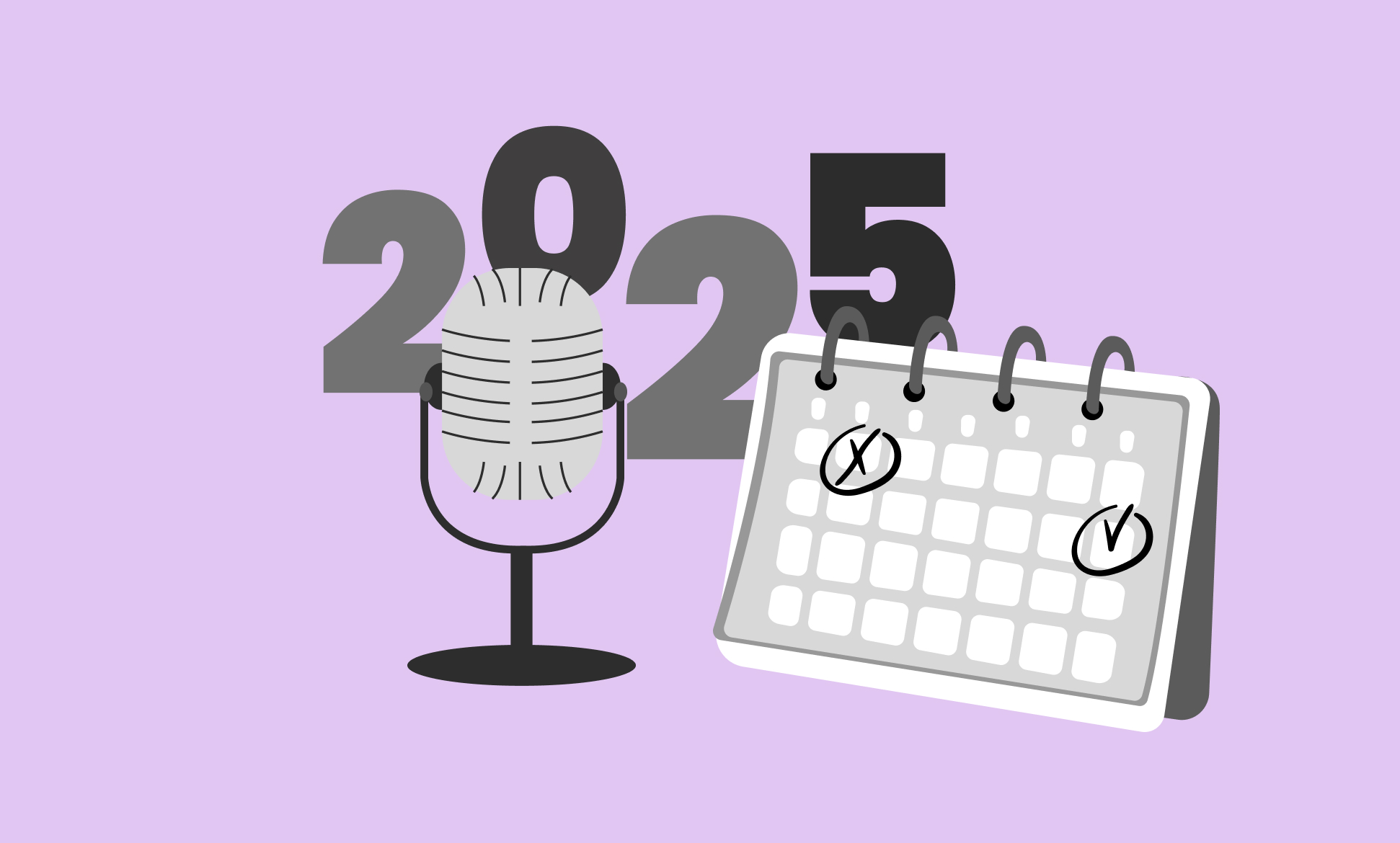While some generalist podcasts are successful, they are few and far between. Almost every single podcast out there falls into a niche and for good reason.
Think of your own podcast habits. When searching for a new show to download, you probably already have an idea of what you’re looking for.
Maybe it's true crime, sports news, or a show about the latest innovations in tech. Most listeners already have a general idea of the content they’re after.
Having a niche means that potential listeners know where to find you and that you have a better chance of becoming a thought leader and getting on the charts in that segment since, of course, there’s less content you’re competing with.

According to CoHost’s State of Branded Podcasts 2022 Report, the top-rated categories for branded podcasts are:
- Business News
- Fashion and Beauty
- Investing
- Society and Culture
- Entrepreneurship
So, how do you find your niche and subsequently develop it so that you’re branded podcast is primed for success?
What is a podcast niche?
According to Merriam-Webster, a niche is a ‘specialized market.’ When applied to marketing, a niche is an area of the market with its own unique needs, preferences, and desires.
This holds true when thinking about your podcast niche. While your branded podcast is not meant to be selling a product, it should address the needs and expectations of the people within your specified target audience. After all, that’s why listeners tune in and engage with your content.
Niches fall within larger categories.
Let’s use ‘Tech’ as an example. This category makes up a large number of podcasts, making it too big to be considered a niche. There are simply too many smaller topics that fall into it.
A niche within tech would be ‘The history of tech.’ This is a specific topic that only a small subset of shows would fall into, designed to reach a specific listener.
Should I define a podcast niche or appeal to a more general audience?
Now you might have the urge to think “Well the history of tech is too specific, if I just focus on tech then I’ll relate to a wider audience”.
And it’s a fair thought, but we’ve found that trying to relate to too wide of an audience means that you relate to no one. It comes down to the age-old debate of quality over quantity.
In this case, we urge you to focus on the quality of listeners rather than the quantity.
How to find your niche
The first step to finding your podcast niche is to ensure it’s something that your brand (or your client) is genuinely interested in, passionate about, and likely has subject matter expertise on.
Nothing is worse than locking yourself into producing a podcast you don’t care about. You and your audience will both know it, and your show will suffer.
When trying to find your podcast niche, we suggest starting with a general list and asking yourself the following questions:
- What unique perspective or expertise do you bring to the table?
- What areas of knowledge do people often turn to you for advice or recommendations?
- What books, podcasts, or media do you consume regularly? What themes do they cover?
- What topics can sustain your interest and enthusiasm in the long run?
- What do you envision as the main takeaway or value for your listeners after each episode?
- Can you provide insight that the other shows can’t?
Consider your knowledge and expertise
Being knowledgeable about your niche is also crucial. Why should the people in this niche care or listen to you?
Maybe you're a wellness brand, so you have authority in the space. Perhaps your client is a lifelong soccer fan, and their vast knowledge makes them trustworthy to audiences. Authority and trust come from a variety of places, but you do need to ensure it's there.
Conduct competitive research
Finally, you need to measure how saturated the niche is, and if your show will be able to differentiate itself. This is called competitive research, and it’s key when it comes to finding your niche.
It's great if you have the perfect idea, but if a popular show with the same premise already exists you will struggle to find an audience.
You can still create a show in the same niche, you may just need to carve out a niche within a niche!
When analyzing the competition, ask yourself questions like:
- What is the podcast about?
- Who is the target audience?
- What could be improved? Or what is lacking?
- What is the podcast format?
- Does the content resonate with listeners? Check out ratings, reviews, and social media.
- Are there lots of similar shows?
Leverage subcategories
As we emphasized earlier, honing in on a specific niche is our top recommendation to help you avoid competing against high-profile celebrities and well-funded media giants. Another way to do this is by leveraging subcategories.
This can take a few different forms:
Target a Precise Audience or Sub-Audience:
Rather than crafting content for a generic category like "parents," tailor your show to cater specifically to "parents of special needs children." This precision establishes a deeper connection and resonates strongly with your listeners.
Delve into a Singular Aspect:
Instead of tackling a vast subject like "paid ads," narrow your scope to something like "Facebook paid ads." This approach allows you to offer comprehensive insights that enthusiasts of that particular niche would find invaluable.
Inject Adjectives for Specificity:
Take the topic of "small business marketing" and inject it with an adjective, transforming it into "nontraditional small business marketing." This slight alteration instantly attracts a distinct audience seeking unconventional strategies.
Over time, as you gain insights into your audience's preferences and your own passions, you can expand or refine your focus. Many podcasts gradually evolve during their initial year as they experiment with content and engage with their followers.
How to develop your niche
Now that you’ve found your niche, how do you develop it? It’s important to keep in mind that niche development is an ongoing process and it’s alright (and normal) to do some readjusting once your show launches.
Like you did when you were finding your niche, you need to continue to do competitive research. What do the other shows in your niche do well, and where do you see room for improvement? This will help inform the decisions you make when creating your own content.
Quick Tip: It’s not always about competition. Other creators in your area can also be assets. Being a guest on shows and inviting other hosts onto yours is a great way to gain authority in the space.
Here are some of the things we suggest leveraging when developing your branded podcast’s niche:
Keywords and listener personas
Keyword research is a great tool to employ when developing a niche. Using effective SEO techniques, a well-thought-out keyword strategy can increase visibility and awareness for your podcast.
There’s great software out there that will show you how popular a keyword is. Some of our favorites include:
If a keyword is saturated, research similar niche-specific keywords that are not as popular so that you can use them in your content to stand out.
Another important step is to create listener personas that help you flesh out the unmet needs of your target audience. If you find that the niche you originally developed doesn't effectively target your ideal listener, you should take your development in a different direction.
Measuring performance and results
Now it’s time to measure your show’s performance. If you’re not getting the results you set for your podcast, you need to re-evaluate.
Maybe there simply isn’t enough interest from audiences, or maybe you aren’t reaching your ideal listener. Continually tracking these data points using both quantitative (data) and qualitative (reviews and feedback) metrics will allow you to continue to develop your segment in a way that will allow you to grow.
Typically, the podcast hosting platform you use will provide most of the data you need to measure performance. For example, CoHost users get access to metrics like Show Consumption Rate, episode comparisons, downloads over time, and dashboards on downloads, unique listeners, and audience profiles (including age, gender, household income, family members, interests, lifestyles, and social media habits).
Every niche is different
Ultimately every podcasting niche is different (that’s the whole point!) and the audiences within those spaces have different expectations.
It’s up to you to do your research and listen to your audience so that your podcast can stand out and become a go-to for your audience.
A well-defined niche not only sets you apart in the saturated podcast landscape but also guides your content creation and enables you to engage your audience authentically. So, take the time to uncover your podcast's unique angle, align it with your brand identity, and remember – you can always expand and redefine your niche over time.
Not sure where to start? Reach out to our team.











